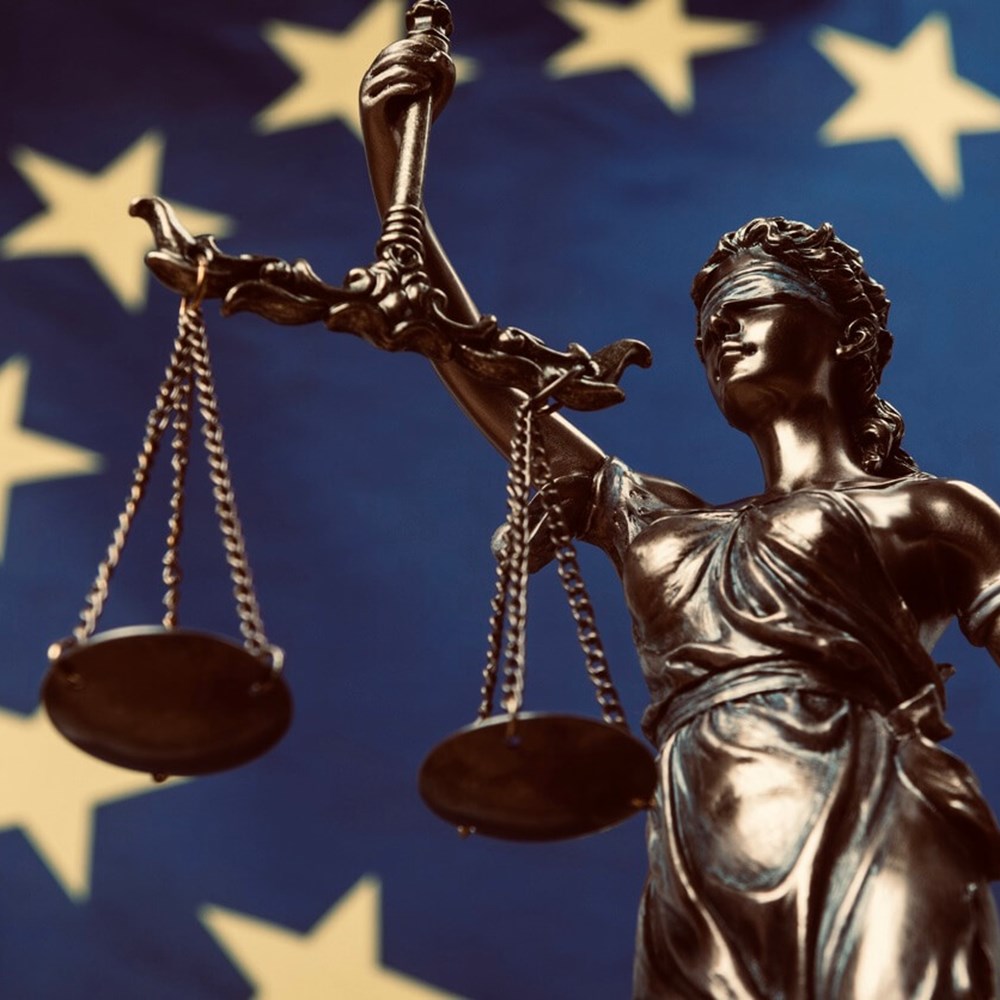The way companies conduct business is changing. Legislation is tightening regulations all over the world. The EU has produced over 50,000 laws and directives in 25 years applicable to the Eurozone, and these regulations continue to get more complex.
Directive on Corporate Sustainability & Due Diligence
On February 3, 2022, the European Commission adopted a proposal for a directive on corporate sustainability due diligence. The proposal aims to foster sustainable and responsible corporate behavior throughout global value chains. Companies play a key role in building a sustainable economy and society. They will be required to avoid adverse impacts of their operations on human rights such as child labor and exploitation of workers, and on the environment such as pollution and biodiversity loss.
This directive will be applicable to EU and non-EU companies working in the Eurozone and includes:
-
EU Companies Group 1 - All EU limited liability companies of substantial size and economic power (with 500+ employees and EUR 150 million+ in net turnover worldwide).
-
EU Companies Group 2: Other limited liability companies operating in defined high impact sectors that do not meet Group 1 thresholds but have more than 250 employees and a net turnover of EUR 40 million worldwide. For these companies, rules will start to apply 2 years later than for group 1.
-
Non-EU Companies - Active in the EU with turnover threshold aligned with Group 1 and 2, generated in the EU.
-
Small and Medium Enterprises (SMEs) - Not directly in the scope of this proposal.
The primary objectives are as follows:
Citizens
-
Better protection of human rights, including labour rights
-
Healthier environment for present and future generations
-
Products and services made in a sustainable way
-
Increased trust in business
-
More transparency and informed choices
-
Better access to justice for victims
Businesses
-
Harmonized framework in the EU creating legal certainty and a level playing field
-
Greater customer trust and employees’ commitment
-
Greater awareness of negative impacts
-
Better risk management (including reputational risk) and adaptability
-
Better access to finance
Developing Countries
-
Better protection of human rights and the environment
-
More awareness about sustainability issues
-
Sustainable investment
-
Improved living conditions for people
The rational for the legislation is, in part, answered by the Economist Impact Survey data that shows ESG regulation to be to be both positive and negative for companies. While keeping up with an ever-evolving landscape, uncertainty is named the top challenge and compliance with ESG is one of the key focus areas. This is closely followed by an increased diversification of funding sources with new investors and customer acquisition and retention.
Human Rights & Environmental Due Diligence Laws
In addition to the new directive, the EU is proposing mandatory Human Rights and Environmental Due Diligence laws based on the publication in late February of 2022 by the European Commission. The Proposal for a Directive on Corporate Sustainability Due Diligence (the “Proposed Directive”) follows a March 10, 2021 European Parliament resolution calling for the adoption of such rules.
The proposed directive represents the first proposed imposition by the Commission of a general human rights and environmental due diligence obligation for companies across their global value chains. Organizations need to be aware that this new law will carry costly penalties for companies and company directors for non-compliance, as well as a civil liability regime to allow victims to sue companies in relation to harm which occurred due to the company’s failure to comply with due diligence obligations.
The Proposed Directive will apply to all EU companies meeting either of the following thresholds:
-
Entities with more than 500 employees on average and a net worldwide turnover of more than EUR 150 million in the last financial year (Article 2.1(a)); and
-
Any other entities with more than 250 employees on average and a net worldwide turnover of more than EUR 40 million in the last financial year, provided that at least 50 percent of this net turnover was generated in certain “high-impact” sectors, including textiles, agriculture, forestry, fisheries, the manufacture of food products, and mineral resources (including oil, gas and coal) (Article 2.1(b)).
Non-EU companies with significant operations in the EU will also be impacted by this proposed legislation.
The proposed directive applies to third-country companies which generated a net turnover in the EU in the financial year preceding the last financial year of:
-
More than EUR 150 million (Article 2.2(a)); or
-
More than EUR 40 million but less than EUR 150 million, provided that at least 50 percent of the company’s net worldwide turnover was generated in one of the high-impact sectors described above (Article 2.2(b)).
The principal aims of the proposed directive considers adverse impacts on:
-
Human rights, resulting from the violation of one of the rights or prohibitions under the international human rights agreements listed in Part I of the Annex to the Proposed Directive (including the International Covenant on Civil and Political Rights, the Universal Declaration of Human Rights, and the International Covenant on Economic, Social and Cultural Rights); and
-
The environment, resulting from the violation of one of the prohibitions or obligations under the international environmental conventions listed in Part II of the Annex to the Proposed Directive (including the 1992 Convention on Biological Diversity, the Convention on International Trade in Endangered Species of Wild Fauna and Flora, the Basel Convention, and the Montreal Protocol).
The EU will require organizations to:
-
Integrate human rights and environmental due diligence into all their corporate policies, and have in place a due diligence policy, which must be updated annually (Article 5);
-
Identify actual or potential adverse human rights and environmental impacts arising from their own operations or those of their subsidiaries, as well as from their “established business relationships” across their value chains (Article 6):
-
“Established business relationships” are a company’s direct or indirect relationships with contractors, subcontractors or other entities:
-
With which the company has a commercial agreement or to which the company provides financing or insurance.
-
That perform business operations related to the company’s products or services for or on behalf of the company, provided the relationships are lasting in view of their intensity or duration and not a negligible or merely ancillary part of the company’s value chain (Article 3).
-
-
-
Prevent and mitigate potential adverse impacts, and bring actual adverse impacts to an end, while minimizing their extent (Articles 7 & 8).
-
Establish and maintain a complaints procedure, allowing persons and organizations (including trade unions or civil society organizations) to submit complaints where they have legitimate concerns regarding actual or potential adverse human rights or environmental impacts (Article 9).
-
Monitor the effectiveness of their due diligence policy and measures, as well as those of their subsidiaries and established business relationships, at least once every 12 months (Article 10).
-
Publicly communicate on due diligence, including by publishing on their website an annual statement in a language customary in the sphere of international business, by no later than April 30 each year (Article 11).[2]
Some additional obligations complement the due diligence requirements including:
-
The adoption of a plan to ensure that the company’s business model and strategy are compatible with limiting global warming to 1.5°C in line with the Paris Agreement (Article 15.1).
-
Include emission reduction objectives in the company’s plan, where climate change is or should have been identified as a principal risk or impact of the company’s operations, (Article 15.2).
-
Recognition of a director’s contribution to the fulfillment of the above obligations when setting directors’ variable remuneration (Article 15.3).
The proposed directive will require member states to lay down rules governing the civil liability of companies for damages arising from a failure to carry out adequate due diligence. It is further stipulated that civil liability will arise even where the law applicable to the relevant claim is the law of a non-EU State.
A company will not be held liable as regards damages occurring at the level of an indirect business relationship if the company:
-
Sought contractual assurances to ensure compliance with the company’s policies and action plans (including through contractual cascading), and
-
Put in place appropriate measures to verify compliance.
However, these actions will not shield the company if it was unreasonable to expect that the action taken would be adequate to address the adverse impact.
A company’s liability will further be assessed taking into account the company’s:
-
Efforts to comply with any remedial action required of it by a national supervisory authority.
-
Investments made and support provided to other entities to address adverse impacts in its value chains.
Companies will be given a reasonable time to remedy non-compliance before sanctions are imposed. Sanctions may include:
-
Fines proportionate to a company’s turnover.
-
Orders to cease or abstain from repeating conduct.
-
Orders to undertake remedial action.
-
Interim measures.
Member states may choose to provide for additional types of sanctions, such as exclusion from public procurement, which if implemented must be published.
Communication on Decent Work Worldwide
The adoption of the proposed directive coincided with other important developments in the EU ESG space. Also on February 23, 2022, the Commission published its Communication on Decent Work Worldwide, promoting decent work in global value chains and reaffirming the EU’s commitment to eliminate child labour and forced labour—including, at a later date, a proposal to ban products made by forced labour from entering the EU. This was followed, on February 28, 2022, by the EU Platform on Sustainable Finance publishing its Final Report for the development of a social taxonomy, spelling out what constitutes a “social” investment (in the same way as has been done in the case of environmental investments under the EU Taxonomy Regulation).
The Proposed directive will then be examined by the European Parliament and by the Council. The speed of adoption will depend, among others, on the extent of discussions on amendments. If adopted, the Proposed Directive gives Member States two years to transpose the Directive’s obligations on large companies into their national laws, and another two years in the case of the obligations relating to the smaller “high risk” companies.
The main EU directives remain which set the framework for public procurement are the Directive 2014/24/EU on public procurement a general directive and the Utilities Directive 2014/25/EU on procurement by entities operating in the water, energy, transport and postal services sector a specific directive for utilities. Public procurement rules for utilities cover the water, energy, transport and postal services. The oil and natural gas exploration, financial, logistic, electronic and philatelic services may be exempted from the rules. The general rules are applied in those sectors. These directives entered into force in 2014, transposed into national legislation by 18 April 2016.
A European Green Deal
- Zero pollution package:
- a) Revision of Regulation (EC) No 1272/2008 on classification, labelling and packaging (legislative, incl. impact assessment, Article 114 TFEU, Q2 2022)
- b) Integrated water management – revised lists of surface and groundwater pollutants (legislative, incl. impact assessment, Article 192 TFEU, Q3 2021)
- c) Revision of EU ambient air quality legislation (legislative, incl. impact assessment, Article 192 TFEU, Q3 2022)
- Climate measures package:
- a) Review of EU rules on fluorinated greenhouse gases (legislative, incl. impact assessment, Article 192(1) TFEU, Q2 2022)
- b) EU framework for harmonized measurement of transport and logistics emissions (legislative, incl. impact assessment, Articles 91 and 100(2) TFEU, Q4 2022)
- c) Review of the CO2 emission standards for heavy-duty vehicles (legislative, incl. impact assessment, Article 192(1) TFEU, Q4 2022)
- d) Carbon removal certification (legislative, incl. impact assessment, Article 192(1) TFEU, Q4 2022)
- Circular economy Initiative on the right to repair (legislative, incl. impact assessment, Q3 2022)
- Plastics package:
- a) Policy framework for bio-based, biodegradable and compostable plastics (non-legislative, Q2 2022)
- b) Restriction on microplastics (non-legislative, Q4 2022)
- c) Measures to reduce the release of micro-plastics in the environment (legislative, incl. impact assessment, Article 114 TFEU, Q4 2022)
- Biodiversity and Farm to fork Sustainable use of pesticides – revision of the EU rules (legislative, incl. impact assessment, Article 192(1) TFEU, Q1 2022)
A Europe Fit for the Digital Age
- Cyber resilience European cyber resilience act (legislative, incl. impact assessment, Q3 2022)
- Semi-conductors European chips act (legislative or non-legislative, Q2 2022)
- Security and defense Roadmap on security and defense technologies (non-legislative, Q1 2022)
Additional Read: Insights on UK Legislation Effecting Procurement and Supply Chain Management
Further areas of note:
Revision of the end-of-life vehicles Directive and the Directive on the type approval of motor vehicles: The revision will promote a more circular approach by linking design issues to end-of-life treatment, considering rules on mandatory recycled content for certain materials of components and improving recycling efficiency. The merging of the two Directives into a single instrument, covering the whole life-cycle of the automotive sector, would provide legal clarity to economic operators and administrations, compared to the current situation which relies on a fragmented approach: cars are covered by Directive 2005/64/EC when they are put on the market, while end-of-life cars are covered by Directive 2000/53/EC. A move to online tools and the use of digital solutions would help to reduce avoidable administrative burden, notably related to the reporting obligations or other procedures, e.g. vehicle (de-) registration and notification systems. In this regard, the revision of the Directive will aim to improve the operational feasibility and implementation of the Directive, and optimize administrative burden through better use of digital solutions and coherence with other sectoral policies and legislation based on a life-cycle approach. (legislative, incl. impact assessment, Article 114 and/or Article 192 TFEU, Q4 2022)
Pending proposals (selection only):
Proposal for a DECISION OF THE EUROPEAN PARLIAMENT AND OF THE COUNCIL amending Directive 2003/87/EC as regards the notification of offsetting in respect of a global market-based measure for aircraft operators based in the Union COM(2021)567 final 2021/0204 (COD) 14.07.2021
Proposal for a REGULATION OF THE EUROPEAN PARLIAMENT AND OF THE COUNCIL on the use of renewable and low-carbon fuels in maritime transport and amending Directive 2009/16/EC COM(2021)562 final 2021/0210 (COD) 14.07.2021
Proposal for a REGULATION OF THE EUROPEAN PARLIAMENT AND OF THE COUNCIL on ensuring a level playing field for sustainable air transport COM(2021)561 final 2021/0205 (COD) 14.07.2021
Proposal for a REGULATION OF THE EUROPEAN PARLIAMENT AND OF THE COUNCIL on the deployment of alternative fuels infrastructure, and repealing Directive 2014/94/EU of the European Parliament and of the Council COM(2021)559 final 2021/0223 (COD) 14.07.2021
Proposal for a DIRECTIVE OF THE EUROPEAN PARLIAMENT AND OF THE COUNCIL amending Directive (EU) 2018/2001 of the European Parliament and of the Council, Regulation (EU) 2018/1999 of the European Parliament and of the Council and Directive 98/70/EC of the European Parliament and of the Council as regards the promotion of energy from renewable sources, and repealing Council Directive (EU) 2015/652
Proposal for a REGULATION OF THE EUROPEAN PARLIAMENT AND OF THE COUNCIL laying down harmonized rules on artificial intelligence (artificial intelligence act) and amending certain Union legislative acts COM(2021)206 final 2021/0106 (COD) 21.04.2021
Proposal for a REGULATION OF THE EUROPEAN PARLIAMENT AND OF THE COUNCIL on machinery products COM(2021)202 final 2021/0105 (COD) 21.04.2021
Proposal for a DIRECTIVE OF THE EUROPEAN PARLIAMENT AND OF THE COUNCIL on measures for a high common level of cybersecurity across the Union, repealing Directive (EU) 2016/1148 COM(2020)823 final 2020/0359 (COD) 16.12.2020 16 No. Full Title References
Proposal for a REGULATION OF THE EUROPEAN PARLIAMENT AND OF THE COUNCIL on European data governance (Data Governance Act) COM(2020)767 final 2020/0340 (COD) 25.11.2020
Proposal for a REGULATION OF THE EUROPEAN PARLIAMENT AND OF THE COUNCIL on the prevention of the use of the financial system for the purposes of money laundering or terrorist financing COM(2021)420 final 2021/0239 (COD) 20.07.2021
Proposal for a DIRECTIVE OF THE EUROPEAN PARLIAMENT AND OF THE COUNCIL amending Directive 2013/34/EU, Directive 2004/109/EC, Directive 2006/43/EC and Regulation (EU) No 537/2014, as regards corporate sustainability reporting COM(2021)189 final 2021/0104 (COD) 21.04.2021
Proposal for a DIRECTIVE OF THE EUROPEAN PARLIAMENT AND OF THE COUNCIL to strengthen the application of the principle of equal pay for equal work or work of equal value between men and women through pay transparency and enforcement mechanisms COM(2021)93 final 2021/0050 (COD) 04.03.2021
Resources:
New EU regulatory framework for batteries (europa.eu)
2021_commission_work_programme_annexes_en.pdf (europa.eu)
Corporate sustainability due diligence (europa.eu)
Value chain and supply chain sustainability | The Carbon Trust
Questions and Answers: Just and sustainable economy (europa.eu)
EU taxonomy for sustainable activities | European Commission (europa.eu)
The EU’s Public Procurement Framework (europa.eu)
https://eur-lex.europa.eu/legal-content/EN/TXT/PDF/?uri=CELEX:32014L0024
EU 2022 work program annex: resource.html (europa.eu)
EU 2022 work program outline: resource.html (europa.eu)













